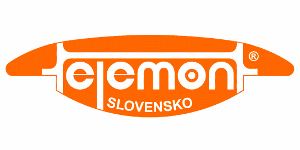| Novinky e-mailom |
| Hľadaj na www.ATO.sk |
 |
 |
 |
 |
 |
 |
 |
 |
 |
 |
 |
 |
 |
 |
 |
|
|
Členovia |
|
|
|
ATO v médiách |
ICT for growth and jobs: most EU Member States need to be more ambitious, criticises Commission’s first annual progress report
Info zo zahraničia | www.europa.eu.int
22.05.2006 | Čítalo: 8406 | Diskusia: 1
To get the full benefits from information and communication technologies (ICT), EU Member States need more ambitious plans to exploit them, says the Commission in its first annual progress report on i2010 – the digital economy part of the EU’s revised “Lisbon” strategy for growth and jobs. To help get growth back on track, Member States need to step up their efforts to improve access to broadband internet connections, facilitate the EU-wide circulation of digital content, free up radio spectrum for new applications, integrate research and innovation and modernise public services.
“Europe’s policies for the digital economy have made some progress, but I do not think that this is good enough” said Viviane Reding, EU Commissioner Information Society and Media.“While we see first good results of the EU’s policy to promote competition and investment in the telecom markets, it is worrying that in ICT research, Europe continues to lag behind its competitors, investing about half as much as the US. ICT are today contributing less to European productivity growth than they did 10 years ago. I call on EU leaders to develop a stronger sense of urgency in their National Reform Programmes and also not to shy away from cross-border competition in the telecom sector. Only through stronger investment in ICT research and effective cross-border competition will we ensure that the great potential of ICT is used to lift our competitive performance across the economy”.
Economic growth in the EU improved in 2005 and is forecast to be around 2% in 2006. But this is still well below the annual GDP growth of 2.7% in the US in 2000-2005. Nevertheless, the ICT sector has continued to achieve above-average growth and is still the EU’s most innovative and research intensive sector, standing for 25% of the total EU research effort and 5.6% of the GDP between 2000 and 2003. ICT also generated at least 45% of EU productivity gains in 2000-2004.
Following the adoption of the i2010 strategy – a European Information Society for growth and jobs – by the Commission on 1 June 2005 (seeIP/05/643), all EU Member States have meanwhile identified research and innovation policies as a key priority in their National Reform Programmes. But although they support the wider adoption of ICT, the National Reform Programmes fail to give a new impetus to information society policies or to cover drivers of growth such as the convergence of digital networks, content and devices.
There are also some positive trends. Investments in networks resumed in 2004 and 2005, and broadband subscriptions grew by 60% in 2005, reaching 60 million or 13% of the EU population. Telecom and cable operators are offering new services, such as ‘triple-play’ or web TV – a development that is strongly encouraged by the EU regulatory framework for electronic communications, modernised in 2002 with the objective of strengthening competition and investment. New impetus can also be expected from the new eGovernment Action Plan, proposed by the Commission in April, which outlines the key role of ICT in making government services more efficient and more responsive (seeIP/06/523).
This year’s annual report on i2010 is the first such report on the implementation of the i2010 strategy which calls for “policy convergence” in the ICT sector to combine regulatory instruments and the promotion of EU-wide research in the interests of growth and jobs in Europe. After the endorsement of the i2010 strategy by the European Parliament and the Council, the European Spring Council 2006 asked the Member States and the Commission to implement the i2010 strategy vigorously.
First steps taken under i2010 include the “Review 2006” of the EU’s regulatory framework for electronic communications, started by the Commission already in autumn 2005; a new strategy for more coordinated and more efficient spectrum management in the EU, proposed by the Commission in September 2005 (see IP05/1199); the modernisation of the EU rules for audiovisual media services without frontiers, proposed by the Commission in December 2005 (see IP05/1573); and a stronger ICT component in the EU’s 7th framework programme for research and development (see IP/05/1171) as well as in the Competitiveness and Innovation programme (see IP/05/391). Next steps by the Commission under i2010 will be a Strategy on a Secure Information Society, to be adopted by the end of May; and policy options for the Review 2006, to be presented by mid-June 2006.
The i2010 Annual report may be found at:
http://europa.eu.int/information_society/eeurope/i2010/index_en.htm
On the Review 2006, see: http://ec.europa.eu/information_society/policy/ecomm/tomorrow/index_en.htm
| :: Banner :: | |
 |

